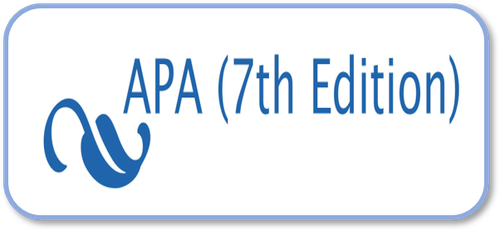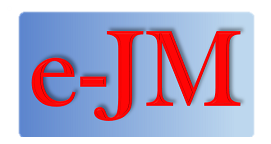Maximizing Organization Performance: The Role Of Travel Business In Jakarta?
DOI:
https://doi.org/10.24912/jm.v26i1.832Abstract
This research has the purpose to analyze the effect of competitive intensity, dynamic capability, organization slack and organization innovation on organization performance on travel business in Jakarta. The sampling method was carried out by researchers utilizing non-probability sampling with the number of questionnaires distributed randomly to 100 travel business owners. The results of this study show the results of testing 4 (four) hypotheses: competitive intensity has an effect on organization innovation, organizational slack has an effect on organization innovation, organization innovation has an influence on organization performance and dynamic capability has no influence on organizational innovation. This research has a novelty on competitive intensity, organization slack and organization innovation actually improve organization performance in tourism travel businesses in Jakarta. This study, making policies related to dynamic capability on organizational performance did not have the ability to seize opportunities and turn organizational resources into more productive.
References
Babelytė-Labanauskė, K., and Nedzinskas, Š. (2017). Dynamic capabilities and their impact on research organizations’ R&D and innovation performance. Journal of Modelling in Management, 12(4), 603–630. https://doi.org/10.1108/JM2-05-2015-0025.
East, Duncan, Osborne, P., Kemp, S. and Woodfine, T. (2017). Combining GPS & survey data improves understanding of visitor behaviour. Tourism Management, 61, 307–320. https://doi.org/10.1016/j.tourman.2017.02.021.
Eide, Dorthe, Fuglsang, Lars, and Sundbo, Jon (2017). Management challenges with the maintenance of tourism experience concept innovations: Toward a new research agenda. Tourism Management, 63, 452-463. https://doi.org/10.1016/j.tourman.2017.06.029.
Ganguly, A., Talukdar, A., and Chatterjee, D. (2019). Evaluating the role of social capital, tacit knowledge sharing, knowledge quality and reciprocity in determining innovation capability of an organization. In Journal of Knowledge Management (Vol. 23, Issue 6). https://doi.org/10.1108/JKM-03-2018-0190.
Giniuniene, J., and Jurksiene, L. (2015). Dynamic Capabilities, Innovation and Organizational Learning: Interrelations and Impact on Firm Performance. Procedia - Social and Behavioral Sciences, 213(09), 985–991. https://doi.org/10.1016/j.sbspro.2015.11.515.
Hair, Jr, J. F. (2015). Essentials of business research methods. In Essentials of Business Research Methods.
Harrington, R.J. and Ottenbacher, M.C (2013). Managing the culinary innovation process: the case of new product development. Journal of Culinary Science and Technology, 11(1), 4-18. https://doi.org/10.1080/15428052.2012.754724.
https://hinyong.com/usaha-perjalanan-wisata/ (accessed on January 5, 2022).
https://www.kelase.com/institusi/73310-keahlianganda/kelas/detail/3232-Usaha-Perjalanan-Wisata (accessed on January 5, 2022).
Hooley, G. J., N. Piercy, and B. Nicoulaud. (2008). Marketing strategy and competitive positioning. London: FT Prentice Hall
Kemenparekraf Communication Bureau (2021). Realization of KUR distribution in the tourism sector
Kumaravel, V. (2018). Assessment of Knowledge Management Practices in Higher Educational Institutions in India: A Structural Equation Modeling Approach. International Journal of Educational Sciences, 20(1–3), 120–136. https://doi.org/10.31901/24566322.2018/20.1-3.15.
Latan, H., and Noonan, R. (2017). Partial least squares path modeling: Basic concepts, methodological issues and applications. In Partial Least Squares Path Modeling: Basic Concepts, Methodological Issues and Applications. Springer International Publishing.
Marín-Idárraga, D. A., and Cuartas-Marín, J. C. (2019). Relationship between innovation and performance: Impact of competitive intensity and the organizational slack. RAE Revista de Administracao de Empresas, 59(2), 95–107. https://doi.org/10.1590/S0034-759020190203.
Najmi, K., Kadir, A. R., and Kadir, M. I. A. (2018). Mediation effect of dynamic capability in the relationship between knowledge management and strategic leadership on organizational performance accountability. International Journal of Law and Management, 60(2), 517–529. https://doi.org/10.1108/IJLMA-01-2017-0004.
Rangel, M. C. R., Rivero, M. S., and Hernández, J. R. (2020). A spatial analysis of intensity in tourism accommodation: An application for extremadura (Spain). Economies, 8(2). https://doi.org/10.3390/ECONOMIES8020028.
Stoilkovska, A., Ristovska, N. and Gramatnikovski, S. (2015). Innovative business models a factor for competitive advantage of the companies. UTMS Journal of Economics, 6(1),135–146.
Turulja, L., and Bajgorić, N. (2018). Knowing Means Existing: Organizational Learning Dimensions and Knowledge Management Capability. Business Systems Research, 9(1), 1–18. https://doi.org/10.2478/bsrj-2018-0001.
Orfila-Sintes, Francina and Mattsson, Jan (2014). Hotel innovation and its effect on business performance, International Journal of Tourism Research, 16(4), 388-398. https://doi.org/10.1002/jtr.1933.
Downloads
Published
How to Cite
Issue
Section
License

This work is licensed under a Creative Commons Attribution-NonCommercial-ShareAlike 4.0 International License.
This journal provides immediate open access to its content on the principle that making research freely available to the public supports a greater global exchange of knowledge.

This work is licensed under a Creative Commons Attribution-NonCommercial-ShareAlike 4.0 International License



















